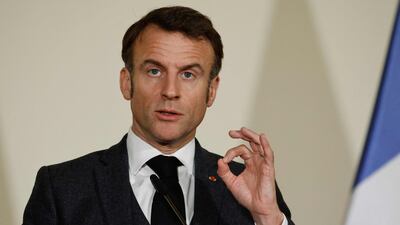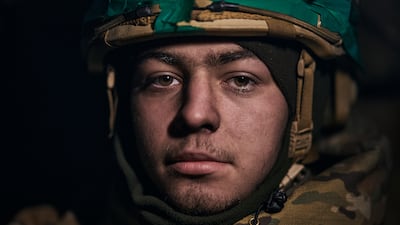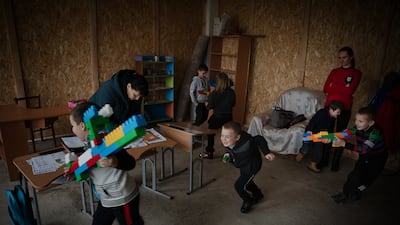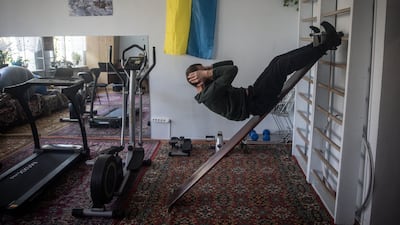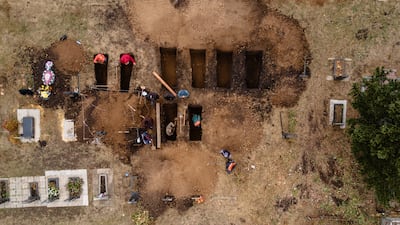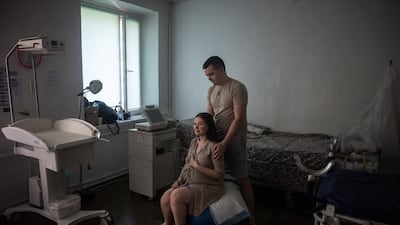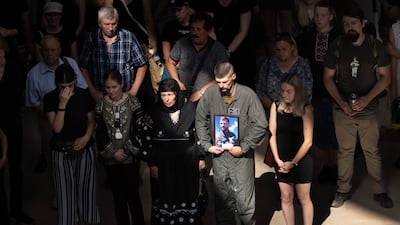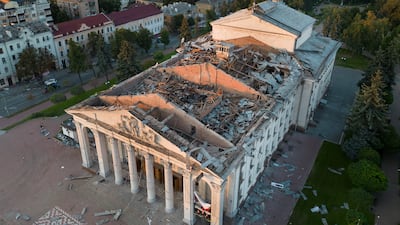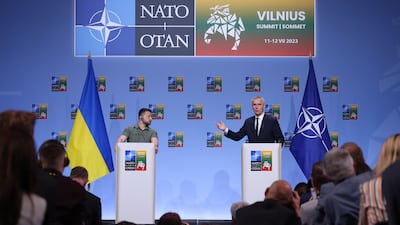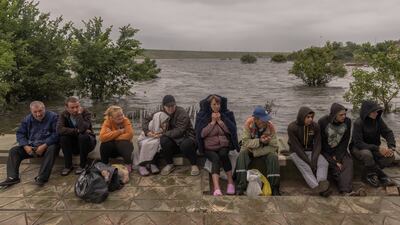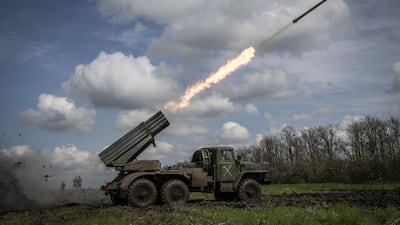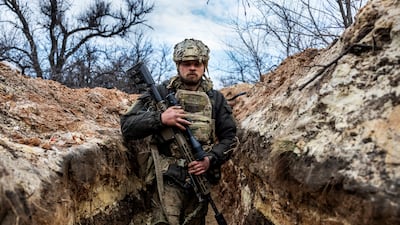French President Emmanuel Macron said on Thursday that he would not rule out any option to support Ukraine two years into Russia's invasion, leaders of major French political parties said.
After meeting Mr Macron, the party leaders said they were concerned, with some accusing him of using the conflict to boost his coalition's standing before crucial European elections this summer.
Last week he stunned many in Europe by refusing to rule out sending western ground troops to Ukraine because of Russia's hardening stance.
And this week, Mr Macron urged Ukraine's allies not to be "cowards" in supporting the former Soviet country to fight off the Russian invasion.
Some party leaders on Thursday said he advocated a "no limits" approach to counter Russian President Vladimir Putin.
Green party leader Marine Tondelier said Mr Macron spoke of Mr Putin having "no limits."
Ms Tondelier said it was "extremely worrying" to see Mr Macron tell the meeting: "We must show we have no limits."
Jordan Bardella, president of the far-right National Rally (RN) party, said he had pleaded with Mr Macron "not to go to war with Russia".
The President's thinking includes "no limits and no red lines", said Mr Bardella.
Two years of the Russia-Ukraine war - in pictures
Far-left heavyweight Manuel Bompard said: "I arrived worried and I left even more worried."
Kremlin spokesman Dmitry Peskov said on Thursday that Mr Macron "continues to raise the level of France's direct involvement" in the Ukraine war.
The French Parliament will have a chance to vote on the country's Ukraine strategy, including a bilateral security treaty signed with Kyiv last month.
Debates and non-binding votes will take place next Tuesday in the National Assembly lower house, and in the Senate upper house on Wednesday.
On Thursday, Mr Macron also met Moldovan President Maia Sandu, pledging France's "unwavering support" for her former Soviet country as tension mounts between her country and pro-Russian separatists.
During the meeting, the two signed a bilateral defence deal and an "economic roadmap", although no details were provided.
Later on Thursday, France was also set to host a video conference of nearly 30 countries including Ukraine, which will follow up on the initiatives discussed at an international Ukraine summit hosted by Mr Macron last week.
Before Thursday's meeting with the opposition, Mr Macron had spoken to his predecessors Francois Hollande and Nicolas Sarkozy at the Elysee Palace late on Wednesday.
Mr Hollande later told reporters more aid for Ukraine was needed, as was European unity.
"The only possible response is to show that we are with the Ukrainians in total solidarity, that we are giving them all the support they need, without taking part in any combat ourselves," he said.
Asked about sending troops, the Socialist former president said: "My position on military issues is: The less we say, the better."
Vladimir Putin says defeating Russia is impossible - video
On Wednesday, government spokeswoman Prisca Thevenot said it was "quite obvious" that the RN was not aligned with Mr Macron's call to do everything to ensure Russia's defeat.
Prime Minister Gabriel Attal has accused the RN of "supporting Russia more than Ukraine".
The RN is the largest opposition party in France's lower house of parliament and leads Mr Macron's alliance by a wide margin in European election polls before the June 9 vote.
Most of Mr Macron's European allies have said they would not send troops to Ukraine, while French officials have insisted any such forces could be sent to support operations such as de-mining rather than fighting Russia.
In an apparent response to Mr Macron, Mr Putin has warned of a "real" risk of nuclear war and said: "We also have weapons that can hit targets on their territory."
